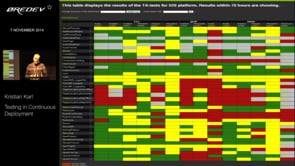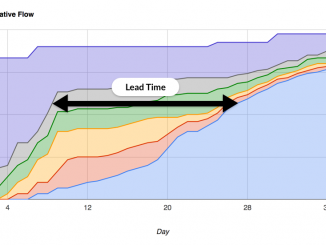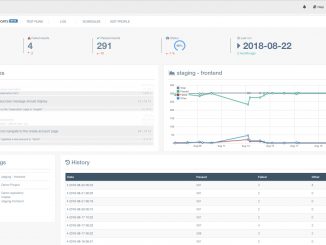How Spotify Test in Continuous Deployment
What kind of software testing do we need to have in a continuous deployment pipeline? What does it take to push a commit all the way to deployment? Fully automated. Several times a day. This is how Spotify does it.








